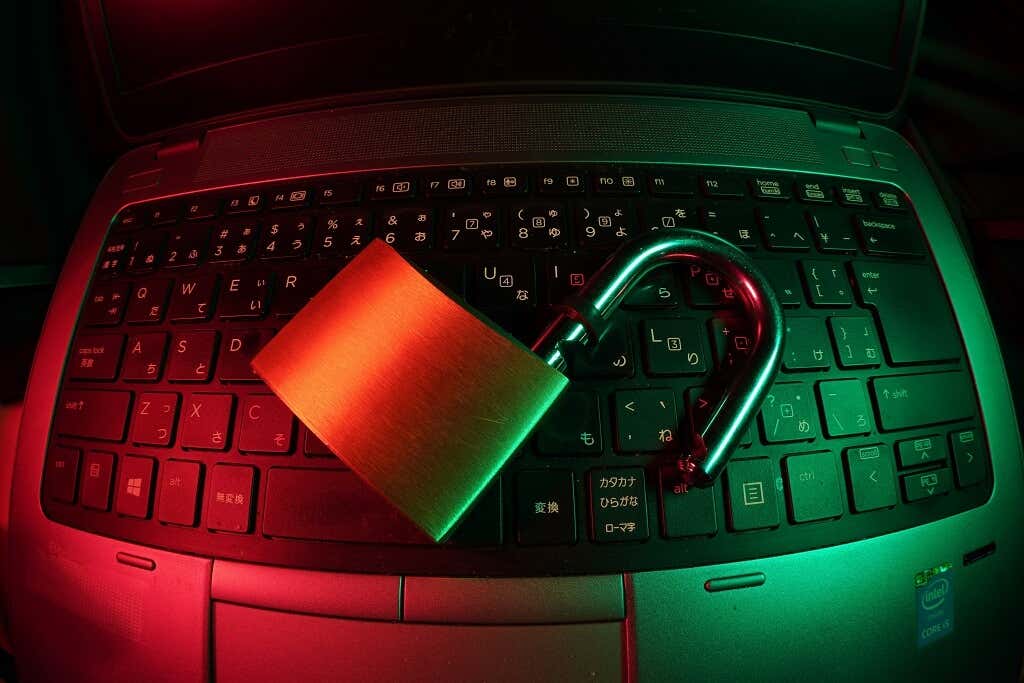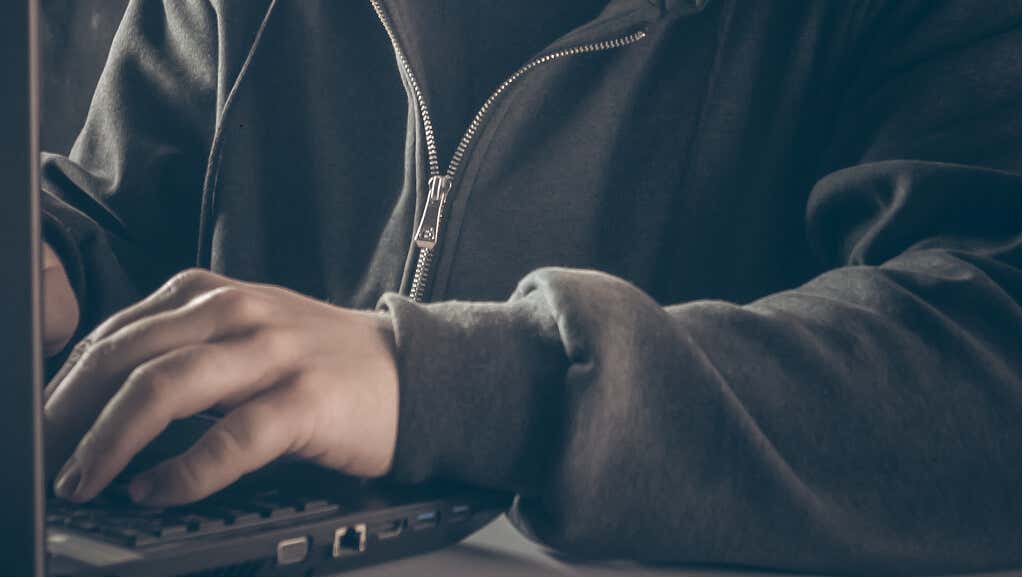Being a digital nomad brings a sense of freedom to your work life. But there are risks involved when working from the internet, especially when you’re constantly moving. Protecting yourself online is crucial to continue working on the road.
In this article, we’ll share six top cybersecurity tips that digital nomads can use to stay safe and protect their privacy online.
The Risks of Working While Traveling
Before we dive into our top cybersecurity best practices, it’s important to know what risks you face when you work as a digital nomad.
Unfortunately, remote work and working from home introduce additional security risks and challenges that most people don’t consider before starting.
For example, digital nomads rely on their own equipment, often require public Wi-Fi to access the internet, and constantly deal with unexpected events outside their control.
Some common risks affecting digital nomads include:
- Unsecured personal devices
- Theft
- Phishing for personal and financial information
- Hackers on public Wi-Fi
- Unencrypted file sharing
By addressing these risks proactively, you can ensure that you can stay safe on the road and continue working while you travel the world.
Here are our 6 top tips to increase your online security and privacy while working remotely:
1. Protect Your Internet Connection
Your internet connection is your lifeblood while working on the road. Without it, you can’t send emails, research details for your work, or access important cloud documents. However, it’s also the easiest point of access for cybercriminals. To stay safe, you should make sure your internet connection is secure.
Here are a few things you can do to ensure that your internet connection is as secure as possible:
- Use a Virtual Private Network (VPN). A VPN masks your connection and encrypts all data you send and receive. This makes it harder for hackers to intercept your data, hides your identity from would-be stalkers, and increases your overall security.
- Avoid public Wi-Fi. Public networks are often unsecured. Hackers can create fake Wi-Fi names to lure you into connecting or install ransomware attacks on unsecured networks. Through these techniques, they can access or install malware on your devices, holding them ransom. If you must use a public Wi-Fi network, use a VPN to mask your connection.
- Secure your personal Wi-Fi. If you use a personal Wi-Fi router or smartphone tethering, make sure that your password is impossible to guess so that others can’t hijack your connection.
With your internet secured, it’s time to move on to your devices.
2. Secure Your Devices and Online Accounts
Aside from your connection to the internet, the most important thing you have as a digital nomad is the laptop and personal mobile device you use for work. One of the most common cybersecurity threats is account and identity fraud.
Here are a few ways to protect your devices from cyber attackers:
- Use strong passwords: All your passwords should be unique and at least 12 characters long, using a mix of uppercase and lowercase letters, numbers, and symbols. If you use the same password for multiple devices, apps, and accounts, and someone learns it, they’ll have access to everything. A password manager is recommended for storing multiple unique passwords securely.
- Use two-factor authentication (2FA): 2FA and multifactor authentication (MFA) adds a layer of security to your devices. Rather than relying on a password alone, they require you to submit a code (or multiple codes) to prove your identity when signing in. This can prevent hackers from accessing your devices even if they know your password.
- Invest in powerful antivirus software: The internet is full of malware, and your devices may get infected if you aren’t careful. To protect your devices, you should use a respected anti-malware solution. At the bare minimum, you should ensure that your firewall and operating system antivirus (e.g., Microsoft’s Windows Defender or Mac’s Security app) are fully updated.
- Update your devices regularly: Software updates usually contain patches that protect against recently discovered vulnerabilities. To ensure that your devices are protected against these vulnerabilities, you should perform updates as regularly as possible. If you’re likely to forget, set up automatic updates.
Bonus Tip: Stay abreast of data breaches. These security breaches occur more often now, and many of your passwords may already be for sale on the Dark Web. You can check whether your passwords or sensitive information has been compromised by using a tool like HaveIBeenPwned.
3. Learn the Signs of a Phishing Attack
Phishing scams occur when cybercriminals impersonate legitimate people or companies and try to trick you into sharing sensitive data like bank accounts and credit card information. To protect yourself from phishing, you must learn what it looks like.
Here are some red flags that indicate a suspicious email, text, or website is fraudulent:
- There are multiple spelling errors. If the email has multiple spelling or grammatical errors, there’s a good chance it’s from a scammer.
- The message builds a sense of urgency. Scammers try to trick you into acting quickly and without thinking. Take your time to consider whether the message is real or not, and then act accordingly.
- The message isn’t from a legitimate source. Double-check that the message or email comes from the expected number or email address. For websites, check that the URL is correct.
To avoid phishing cyberattacks, contact a person or company directly to confirm the details. Never follow a link in a suspicious message, as it might install malware on your device or take you to a fake website.
4. Encrypt Your Emails
If you often send emails that contain confidential information, you should encrypt them. In fact, you should encrypt all of your online and offline data. This will ensure that no one can access the information within your emails, even if they’re intercepted. The same goes for any documents and files you send online.
This is especially important if you’re an employee for a company rather than a contractor.
Most email services provide free and paid encryption services that you can easily use to protect your data.
Bonus Tip: If you’re employed by an organization but work remotely, it’s vital that you use a company device or discuss cybersecurity if you use your own devices. They’ll have policies and procedures in place to protect their data. You might be liable for a policy violation if something goes wrong as you’re using a personal device.
5. Backup Data Regularly
Regular backups ensure that if something goes wrong, all your data is safe. These can be done locally on external hard drives and flash drives or via the internet using cloud-based backup solutions.
For a digital nomad, the best option is to back up your data to the cloud. That way, you don’t need to worry about physical security when carrying additional storage devices. Likewise, you’ll have no risk of leaving your hard drive behind or having it stolen.
If you choose to use an online solution, there are dozens of providers to choose from. Google Drive is one of the simplest solutions that integrates with many tools you already use.
Many of these solutions provide additional tools like automatic backups at regular intervals, encryption, and malware scanning.
Bonus Tip: As a digital nomad, it’s a good idea to keep digital backups of your passports, immigration cards, visas, and so on. That way, if they’re lost or stolen, you always have a way to identify yourself.
6. Employ Safe Browsing and Social Media Habits
This may sound obvious, but cybersecurity awareness involves avoiding unsafe behaviors. People often forget how their browsing habits, social media posts, and other online behaviors can broadcast their personal information and make them vulnerable to cybercrime.
Here are some tips to stay safe online:
- Never share your location. When you share your location, you open yourself up as a target — especially if you’re in a foreign place you know little about. To prevent this, you should avoid sharing pictures that show where you’re staying and turn off apps that track your location (like Snapchat).
- Don’t post personally identifiable information on social media. Sharing personal information like your birthday, phone number, and address can lead to scammers taking your identity. It can also help hackers work out your password recovery questions.
- Change your privacy settings. To prevent scammers and stalkers from figuring out more about you, you should change your privacy settings so that only trusted friends can see your details.
- Never click links in emails or texts. Links in suspicious messages often lead to fake websites that try to steal your personal information or login details.
- Only access secure sites. When visiting websites, double-check that the HTTPS padlock symbol is in the URL bar of your web browser. This indicates that you have a secure, encrypted connection to that website.
Stay Safe On the Road
As a digital nomad, the security of your devices and identity is paramount. Without a private internet connection, secure devices, and safe practices, your ability to continue working is uncertain. By following these information security tips, you can stay safe and continue to work without hiccups.






